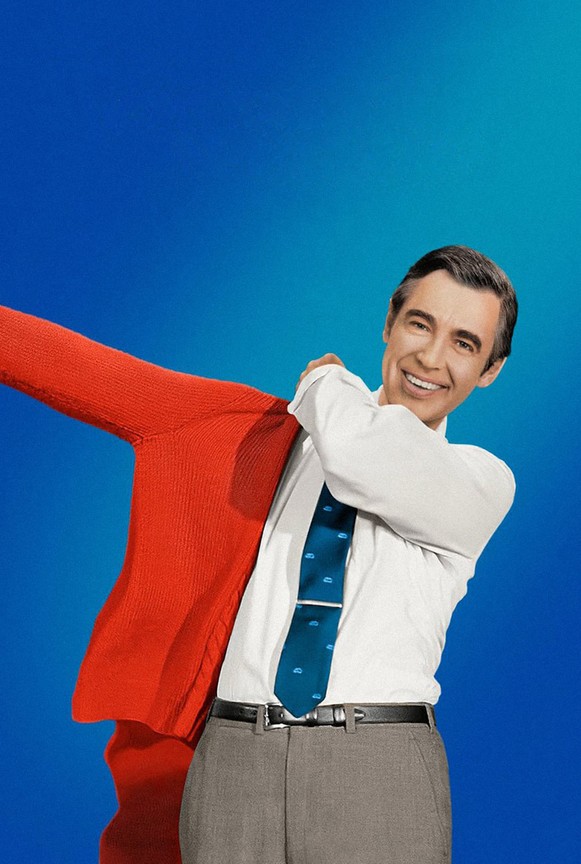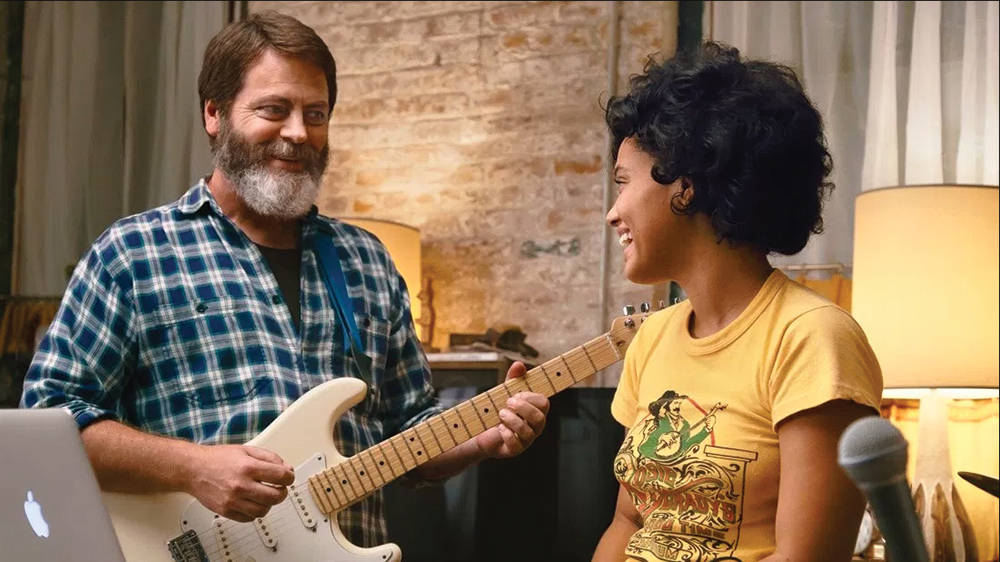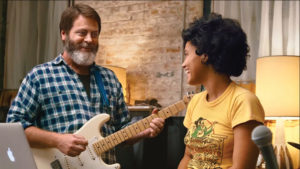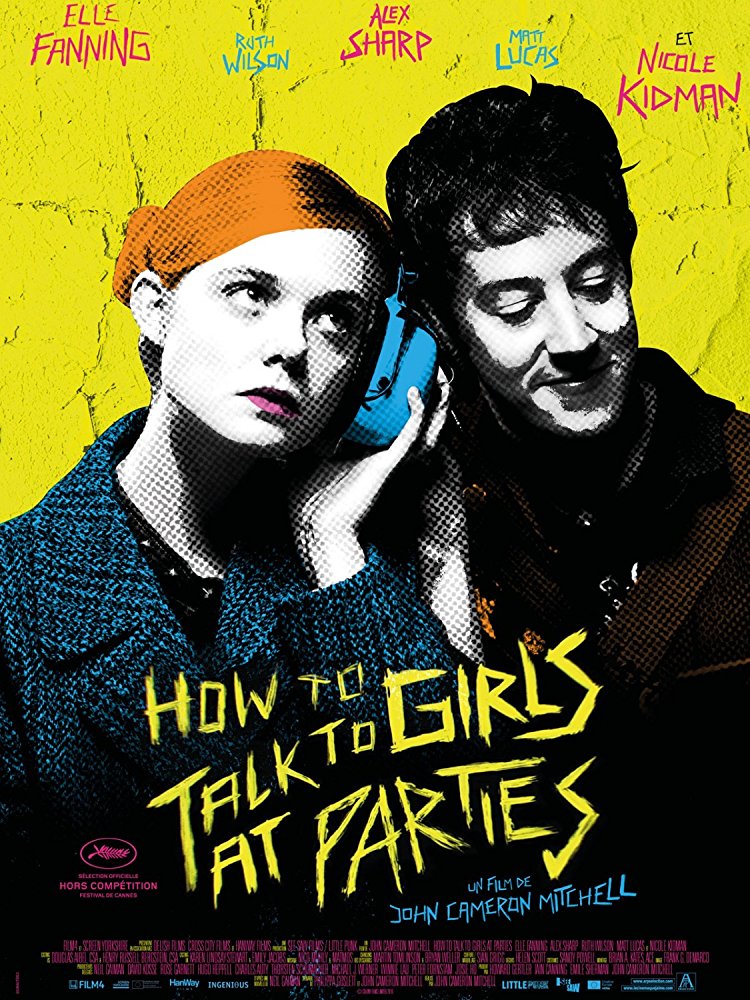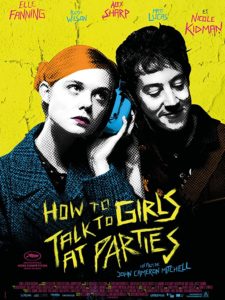Incredibles 2
Posted on June 14, 2018 at 5:49 pm
A-| Lowest Recommended Age: | Kindergarten - 3rd Grade |
| MPAA Rating: | Rated PG for action sequences and some brief mild language |
| Profanity: | Schoolyard language |
| Alcohol/ Drugs: | None |
| Violence/ Scariness: | Extended action/superhero peril and violence, gun, sad (offscreen) murder of parent |
| Diversity Issues: | None |
| Date Released to Theaters: | June 15, 2018 |
| Date Released to DVD: | November 5, 2018 |
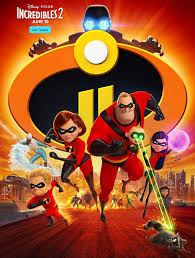
Brad Bird knows that all families are pretty incredible, and his movies about the family of superheroes reminds us that we know it, too. The writer/director of “The Incredibles” and this sequel, “Incredibles 2” (there’s a lot going on, so this title is streamlined and has no room for an extraneous “the”) took 14 years and it was worth the wait. We are glad to be back in the world of the super-family, though for many of us, our favorite character is still super-suit designer Edna Mode (voiced by Bird himself). Edna’s comment is really the theme of the film: “Parenting done right is really a heroic act.”
One of the best ideas in the original was giving each family member a heightened version of the real-life superpowers we see in all families. The dad is Bob, otherwise known as super-strong Mr. Incredible (Craig T. Nelson). Mom is Helen, who is always stretched in a million different directions, Elastigirl (Holly Hunter). The middle school daughter, Violet (Sarah Vowell) is invisible, because middle school is such a fraught time that many kids either think they are invisible or wish they were. And her younger brother is super-fast Dash (Huck Milner). There’s also a baby named Jack-Jack, who in the last film had not developed any superpowers yet, but in this sequel makes up for lost time with at least 17 of them.
We begin right where the first film left off. Even though they just saved the day, superheroes are still outlawed by a government that considers them too much of a risk. Violet has finally been noticed by the boy she likes. And a new super-villain, The Underminer, has attacked the town.
The Incredibles save the day, but it does not change the law. “Politicians don’t understand people who do good only because they think it right.” Even the secret government program to keep the superheroes saving the day is shut down. The Incredible family has no place to go…until a pair of siblings who head up a huge corporation make them an offer. They think they can persuade the government to change the law, but first Elastigirl — and only Elastigirl — will have to come with them.
The movie’s funniest moments come when Bob is left behind with the kids. He may be able to lift a locomotive, but new math is an entirely different problem. And Jack Jack’s new powers start popping out like jumping beans. The concept of baby-proofing a house takes on a whole new meaning when it isn’t the baby you’re trying to protect. It’s the house that needs protection when a baby has laser beam eyes, invisibility, and a mode that can only be described as fire-breathing gorgon. He may not be able to walk or talk yet, but a raccoon who won’t leave the yard will be very sorry about making that mistake.
Meanwhile, Elastigirl is happy to be using her powers again, but she misses her family, even when she gets a call about Dash’s missing shoes in the middle of a mission. Of course a new villain is going to challenge the whole family, their old friend Frozone (Samuel L. Jackson) and a delightful new group of oddball superheroes. The action scenes are as thrillingly staged as all of the “Fast/Furious” films put together, the mid-century-inspired production design is sensationally sleek and space age, especially the house the Incredibles borrow. Some serious and timely issues are touched on lightly but meaningfully, including immigration, how to respond to laws you consider unfair, opting for “ease over quality” in consumer goods, and spending too much time on screens with not enough connection to people. The villain, once revealed, seems a bit patched together, however, as though there was some re-writing done over the 14-year gestation period that never got fully resolved. But there is plenty of comedy and lots of heart in a story that truly is incredible. Please don’t make us wait until 14 years for the next one.
DVD Extras include concept art and a new feature about Edna Mode.
NOTE: Pixar continues its track record for making parents in the audience cry, this time even before the feature begins. The short cartoon before “Incredibles 2” is the story of a mom who just is not ready for her son to grow up and, I’m sorry, I must have something in my eye.
Parents should know that this movie includes an offscreen murder of a parent with a gun, extended action/superhero peril and violence, characters mesmerized and forced to obey, and brief mild language.
Family discussion: Which is more important, selling or designing? When should you be a cynic and when should you be a believer? What are your core beliefs?
If you like this, try: “The Incredibles,” “Monsters vs. Aliens,” “Inside Out,” and “Sky High”



